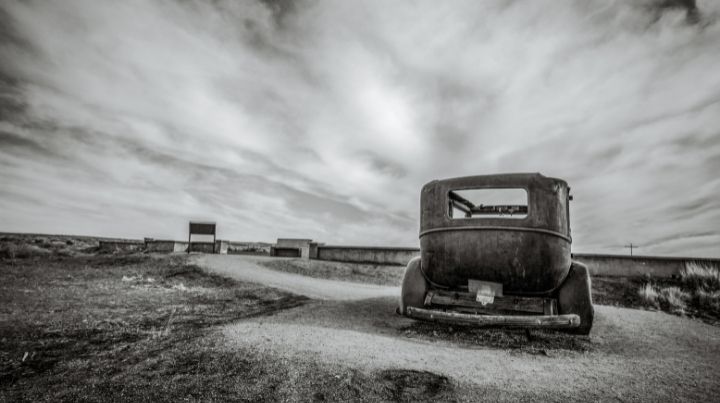Lessons from the Great Depression We Can Use Right Now

The late 1920s and early 1930s were challenging times economically for our country, and we're starting to see similar issues today. Those who are wise learn from history, and those who do not, repeat it. Here are some lessons we can take from the Great Depression and apply them to our current situation.
A Quick Timeline of the Great Depression
First, let's take a quick look at the timeline of the Great Depression. The interesting thing about this is that we can see some similar patterns, which can allow us to make educated predictions.
- 1929 to 1939. The Great Depression reached its lowest point by 1933. Unemployment hit nearly 25%, with 15 million unemployed Americans. Nearly 50% of the U.S. banks had failed. Regardless of what the statistics show, the unemployment rate at the height of the pandemic was similar to that of the Great Depression. Imagine 25% unemployment going on for years!
- The stock exchange was madness. Business tycoons to everyday people put their life savings into stocks, thinking they'd make a fortune. That caused the market to expand far too rapidly, peaking in August 1929. Stocks were selling at prices much higher than their actual value, and banks were holding too many bad loans. Unfortunately for us, the events that led to the Great Depression may lead to an even more difficult time for us today. While the conditions of the Great Depression and now are similar, the size and needs of today's population can potentially make our situation much worse.
- When it came to the Great Depression, things began to officially hit the fan in 1929. This was when investors began selling their shares of the overpriced stock. Once the sale started, other investors followed suit, and soon, the entire market crashed. This led first to “Black Thursday” and was followed 5 days later by “Black Tuesday.”
- President Herbert Hoover and other officials tried to assure the country that this crisis would run its course and everything would be fine. However, things then, like many fear are happening now, continued to worsen. As always, with preparedness, plan for the worst and hope for the best.
- The unstable financial times continued through the fall of 1930, when the first wave of banking panic set in. The run on the banks began as more and more people lost confidence in their banks and demanded their money in cash from the banks. The banks did not, however, have the cash on and. So, to raise the cash, banks liquidated loans to supplement their insufficient cash reserves. Here's a question, what do you believe would happen today if people lost confidence in their banks and demanded their money in cash?
- So, how did the United States recover from the Great Depression? Well, the New Deal (1933) started the recovery, and eventually, WW2 ended it thanks to wartime manufacturing. The question now is, where are we in our financial recovery process. Wherever we are, time will eventually tell whether our elected represents get it right or not.
In the meantime, however, if they come up short on avoiding the next Great Depression, it's a good idea to be ready for whatever happens. Between all of today's issues, including Modern Monetary Theory, we have room for concern.
Personal Lessons from the Great Depression
Now, there's not a whole lot we can do to affect federal spending, misguided policies, and the economy at large. But there are many lessons from the Great Depression we can take from average folks like us who were just trying to get by. You may be able to apply some of these Depression-era hacks to your own life.
During the Great Depression, people…
Grew Victory Gardens
Many people grew their own food too, at a minimum, supplement the food they had to purchase. There are tons of websites out there with advice on gardening in nearly any situation, whether you live in the city or the country.
Bought Food in Bulk
Buying the foods you eat more frequently in bulk helps cut costs and helps make sure you're better prepared with more of your go-to items on hand. Here's an article on buying grains in bulk. Grains have a lot of caloric bang for your buck and make inexpensive fillers for your meals.
Cooked From Scratch
If you like burgers, watch a few YouTube videos on making whatever style of hamburger you like best. Then, give it a try. You'll probably screw it up at first (at least I did), but after enough tries, you'll have a great-tasting burger. And that great-tasting burger will cost a hell of a lot less than the junk they're serving to you in a restaurant.
Ate at Home
Compare the cost of cooking a meal at home with purchasing that same meal at an unhealthy fast-food chain restaurant. That doesn't mean don't go out to eat and make it a treat or special event when you go out. One of the major lessons of the Great Depression was how to extend a simple meal with inexpensive ingredients like rice or gravy.
Ate Left-Overs
There is nothing quite as tasty as some fresh leftovers. Personally, I may enjoy the day after Thanksgiving post-feast better than I do the Thanksgiving feed. So, if you don't eat it on the first go-round, don't toss it. Instead, wrap it up and put it in the fridge. Here's an article about using up your leftovers.
Had “Potluck” Get-Togethers
Now that you're eating in host a potluck or talk some gullible person into hosting one at their place. Also, now that you're cooking from scratch have everyone bring a dish. There was a time when this thing called socializing was actually a thing people did.
Used Everything Up
Clothes become rags. Old pickle jars become holders for nuts and bolts. A shocking number of things that most people throw away can be reused.
Repaired What They Had
I believe most of us throw out too much stuff. We often throw things away even though everything that breaks is NOT broken. Before throwing something away, try fixing it.
Repurposed Their Broken and Outgrown Stuff
When something is broken, see if it can be used in another capacity. at the very least, the broken item that you perhaps failed to fix in Lesson #8 can be stripped of parts that could be useful elsewhere. Use some of those old spaghetti sauce jars to hold hardware. The same holds for clothes that are outgrown. When clothes no longer fit someone, and they're not planning on dieting in 20-years to see if they can still fit in their prom dress, pass it along. Siblings, cousins, friends, and the donation places like Goodwill, can all use pre-owned clothes. Alternatively, you may be able to use the fabric from a dress for multiple purposes, unravel an unwanted sweater for a ball of yarn, and create raw materials for future projects.
Bought Things Second Hand
Brand new can be extremely nice. However, new-to-me – buying something second-hand – can be pretty good too. Reimagining our expectations of the value of brand new vs. new to me is a great drill for everyone to practice. Buying secondhand at a reduced rate is another version of repurposing. In this case, the buyer is repurposing the seller's goods.
Sold Stuff They Didn't Need
If you're not giving something you don't need or want away to help others, consider selling it. Swap meets, online such as Facebook Marketplace, Craigslist, and eBay, are great ways to put some extra money in your pocket. If you have a LOT of stuff you don't want, you might be able to cash in by having a yard sale.
Wore Their Clothes More Than Once Between Washings
Washing clothes beats them up. So, don't toss your clothes in the wash just because you wore them. Instead, do a visual check to see if they are “clean enough” to wear. If you're really worried about it, do a smell test to see if they smell “clean enough.” “Clean enough” means you don't look too nasty or smell too offensive for the situation. In other words, don't wash your clothes until you need to, rather than just because you wore them once.
Did “Free” Things
People barely had enough money for food. They surely didn't have money for a lot of extra things like entertainment. Hiking, picnicking, going to the public library and reading a book, taking the kids for a walk, making use of the playgrounds and playgrounds available for free at many parks for the kids…the list of things you can do for fun is nearly endless if you let go of your prior expectations of what entertainment entails.
Didn't Use Credit
The Great Depression lacked many things, and one of those things was credit cards. In today's world, a financial preparedness mindset means considering limiting the use of credit. Imagine you purchased a $5,000 item on an average credit card with a 20.28% APR. Then you made the minimum payment of 2% of the balance to pay it off. It would take you over 30 years and cost $23,399 for that $5,000 item that will probably be long forgotten before your credit card balance is paid off.
Turn Off Electrical Items When Not in Use
My grandparents and parents would bitch at me for leaving a light on, a door open, etc. They didn't want to waste money on electricity. At the time, I rolled my eyes, but things like that can really add up. The average household has 45 lightbulbs. Leaving all those on for 24 hours costs approximately $5. (This varies widely based on where you live, what you rate is, and what kind of bulbs you have.) But the thing to remember here is that pennies add up to dollars. When you do have the lights on, use energy-efficient LED bulbs like these.
Made Things
Why were depression era people so skilled at making things? Because many didn't have the money to buy things. So, they made them. People made all sorts of things: their own furniture, clothes, soap, etc. They became proficient at meeting their own needs.
Walked
Photos of people from the Great Depression typically show lean, somewhat fit people. Why is that?
It wasn't just from lack of food and manual labor. It is also due to people walking a lot more. Even people who could afford a car didn't always have the money to operate it daily. So, people walked a lot more than they do now.
The Bottom Line on Lessons from the Great Depression
While many of the things we learn from history are glaring warning signs, we can also take many positive lessons from times like the Great Depression. These lessons will help us as times continue to get tighter. One other thing to note is that the economy is often cyclical. Check out these journal entries from a guy who wrote about his life during the Great Depression. It was incredibly difficult, but eventually, things got better.
If you have any older people in your life, ask them if they have any lessons from the Great Depression they can share with you. Do you already use some Great Depression-era tricks in your household? What are they? Let's talk about them in the comments.
Additional Resources:
- 4 Prepping Tips Straight from The Art of War
- Inventions of World War 1 That Influenced the World
- The History of Disaster Prepping
- Poor Richard’s Almanac: 200+ Years of Great Info
Stay safe!

Originally published 06/30/21
Related Articles
FREE Guide
Read the Best Seller
Join Mind4Survival
Stay informed by joining the Mind4Survival! 100% Secure! 0% Spam!
Affiliate Disclosure...
Mind4Survival is a free, reader-supported information resource. If you make a purchase through our link, we may, at no cost to you, receive an affiliate commission.
Do You Want To Be Ready No Matter What?

Download our free 39-page guide with interactive, 7-Day Emergency Kit Checklist and take the first step toward real preparedness.
- Know exactly where to start.
- Save time and money.
- How-to build a complete Basic Emergency Kit.
- Level up your safety and security.
Join Mind4Survival
Stay informed by joining the Mind4Survival! 100% Secure! 0% Spam!






Good Article!
Thanks, Bart!
“Write in some shit about how credit is bad…”
LOL
OK
Depression-era babies wore cloth diapers, which were then put into the diaper pail pending washing (separately from the other wash loads), and hung on clothes lines to dry. I don’t know how many diapers were needed – I was the consumer, not the supplier). But I know that the wealthier families contracted for diaper cleaning service ( pickup and delivery).
I can’t imagine how many diapers were needed. It’s not like babies don’t use a ton of diapers.
My boys all used cloth diapers – and we averaged at the most, if I remember, about 5 dozen? I was doing a load of diapers about twice a week – three at the one point I had 2 at the same time (I had 3 under 3, but the oldest was trained just as #2 came along)
Did you ever sleep!?
Back in the dinosaur era when I was a little kid, I remembered all of the smells from people cooking their food for the evening meal. I’d smell this while us kids were all outside playing until we got called in for supper. I sure don’t notice those cooking aromas now like I did back then. I think more people are using a microwave, eating out, or getting carry out. That may have to change soon!
100% agree! I used to love my mother’s and grandmother’s home cooking. A simple lunch was often a great experience. And just imagine, actually controlling what goes into our food and ultimately our bodies.
Back in those days we slept with windows open, door weren’t locked and we could tknew and could trust our neighbors.
I still don’t lock my doors at night or when I leave to go to town….or lock up my car at home. I’m incredibly thankful for where I live.
The New Deal actually prolonged the Great Depression. Some suggest it was prolonged by SEVEN YEARS. But you are correct that WWII ended it.
For example, the public works projects FDR introduced became an active drag on the U.S. economy. As an example, the TVA flooded over ONE THOUSAND SQUARE MILES of farmland and towns. People were forced to move with no compensation at all. Remember the Agricultural Adjustment Act? It increased prices while forcing poor black sharecroppers out of work, which lowered production. The WPA was an employer of last resort, the Fair Labor Standards Act was anything but. I could go on and on…
LED bulbs are worth the investment. Not only do they use about one-sixth the amount of electricity as an incandescent bulb, they last 30,000 hours. Incandescents last about 1,000 hours.
Because they don’t make a lot of incandescent bulbs any longer, their price per bulb has risen. As LEDs have gotten more popular, they have gotten cheaper. At Home Depot, the equivalent LED and incandescent bulb each cost about $1.25 each (I remember in 2005, when I could get a 4-pack of incandescents for $1.49).
So you have a bulb that uses 10 watts of electricity per hour versus 60 watts (same light output). After 1,000 hours your LED has burned about a dollar’s worth of electricity (10 cents/kWH). After 1,000 hours your incandescent has burned $6 worth of electricity, and you need to buy a new one.
After 30,000 hours, your single LED bulb has cost you about $31.25. After 30,000 hours, your 30 incandescent bulbs (because you need to replace them every 1,000 hours) have cost you $217.50.
Despite the savings, it is always a good idea to turn off the light when you leave the room.
I was blessed to have grandparents that survived the Depression. Did my best to learn from them, great article Brian.
My mother was very frugal. My father’s salary paid the rent, bills and groceries. She had a small amount of money come in monthly from the government called “baby bonus” and that was used for clothes and shoes for us. She cooked meals every night, very rarely did we go out. She made some clothes for us and she would reuse jars to store things and reuse milk bags to freeze items in the freezer. Now that I’m on Leave without Pay due to my vaccine status, I’m using those same lessons from my mom. Started growing a small vegetable patch, reusing my jars, cooking more meals at home and eating less out. I’ve also been reading about lessons from the depression era and trying to implement those same ideas in my daily life. I am grateful for the elders that I meet because I always learn something new from them. So grateful for their wisdom!!
Brenda, That’s fantastic! I’d love to learn more about your experience? Please keep us posted here! Be safe ~Brian
What happened to the stock market? Did wealthy investors swoop in, did any “regular” people just leave what they had in there and eventually recover?
older gramma here that grew up with parents that went thru the great depression. all four of my kids had cloth diapers. we used doubled up ones or old kitchen towels or receiving blankets when more protection was needed. and kids were totally potty trained by the time they were one and a half. when a child is wearing a soggy diaper, he is much more likely to notice and cooperate in pottying, the whole way of life is a different mindset. i was told by a dau-in-law that all the other old people she knows eat microwave meals and are in horrible health. not going to pat myself on the back here, there but for the Grace of God,….. it’s thought provoking. i cook from scratch simple meals with a lot of home-grown. my hubby is 87 with copd all of his life. he has been told by docs for over 40 years he won;t live long. we don’t eat perfectly, but i’m sure at this point the key is eating simply and as healthy as possible. we walk every day – always been my favorite exercise along with gardening. incorporating exercise into daily life and not paying for a gym membership and wasting time there. us older folks can look back and see how much simpler people used to live – with less wants and possessions. and were happier for it. smaller house, one car to a family, popcorn for a treat, fewer clothes and one or two pair of shoes, simple entertainment. so much more i could say, but i’m sure many more of you will add a lot of insight too. may God be with us all as we navigate these troubling times.
This is a great article and an important one. Too many people think they can’t survive without disposable diapers, restaurants, multiple cars, cell phones and busy lives trying to keep up or top the neighbors. My parents survived those hard times. I was raised on lots of beans, taters and cornbread. We heated by wood and coal. Our water came straight from the ground. We hand washed our clothing and hung outside to dry even in the winter. Food was either grown or raised. We went to town once a month for staples like flour, sugar, salt, etc. Looking back it didn’t feel like a hard life because that was all we knew. ..The easy conveniences didn’t exist. We didn’t have many toys because be didn’t need them. We had the trees and woods and creeks to play around. That is AFTER YOU DID YOUR CHORES!
Thanks Brian.